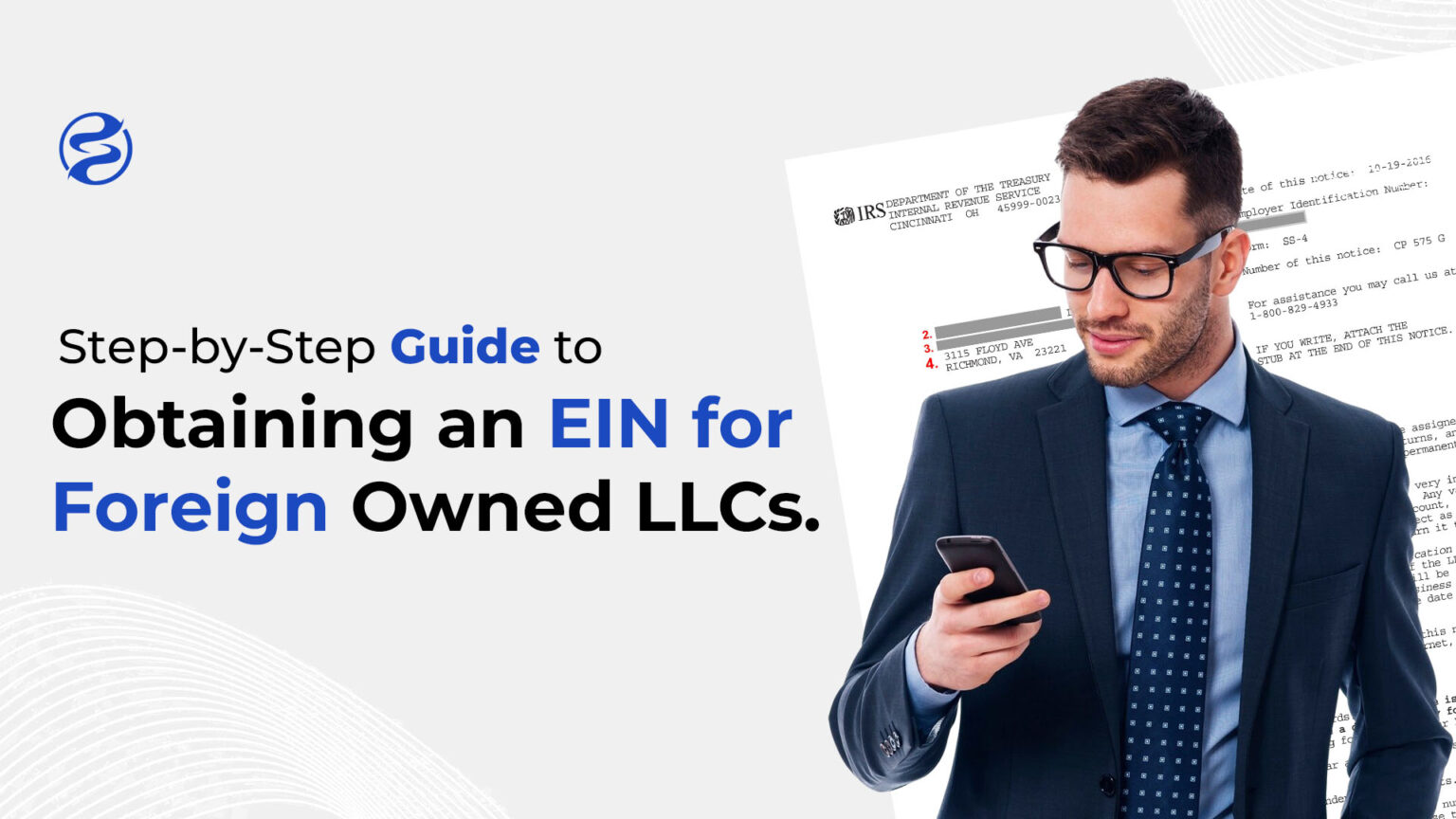An Employer Identification Number (EIN) is a critical requirement for foreign-owned LLCs that wish to legally operate in the United States. The EIN is a unique nine-digit number issued by the Internal Revenue Service (IRS) to identify businesses for tax and regulatory purposes.
Without an Employer Identification Number (EIN), a foreign-owned LLC encounters significant operational barriers in the United States. Opening a U.S. business bank account is not possible without an EIN, which is necessary for managing company finances separately from personal funds and for processing payments from clients or customers. Filing federal or state taxes is also not feasible, as the EIN serves as the primary identifier for fulfilling legal tax obligations required of all businesses operating in the U.S, regardless of the owner’s nationality. Employing staff is restricted as well, since the EIN is essential for payroll tax reporting and for issuing tax documents such as W-2 forms to employees. Additionally, many state and local business licenses-including those required for restaurants, construction firms, or import/export companies, list an EIN as a mandatory part of the application process. Thus, the EIN is a foundational requirement for compliance and access to critical business functions for foreign-owned LLCs in the United States.
For Example
Suppose you are a non-U.S. resident who has formed an LLC in Florida to sell products online to American customers. To receive payments through a U.S. business bank account, you must have an EIN. If you want to hire a marketing manager based in the U.S, you need an EIN to handle payroll taxes. When it’s time to file your annual tax returns, the IRS will require your EIN to process your company’s paperwork. Even if you’re applying for a local sales tax permit or a city business license, the application will often ask for your EIN.
Step-by-Step Application Process
Step 1: Document Preparation
To successfully apply for an EIN as a foreign-owned LLC, these three critical documents are important. Missing or incorrect paperwork can delay your application or lead to rejection.
Form SS-4
The first document required is IRS Form SS-4, which is the official application for EIN. This form must be filled out with accurate details about the LLC, including its legal name, mailing address, and information about the responsible party. For foreign-owned LLCs, it is important to clearly indicate the entity type and provide all relevant information as requested by the IRS. The form can be downloaded directly from the official IRS website to ensure the latest version is used.
LLC formation documents
Proof of the LLC’s registration is necessary to demonstrate that the business is legally established. This typically means providing the Articles of Organization or a Certificate of Formation, depending on the state where the LLC was created. These documents show the legal name of the LLC, the date of formation, and other essential details. The IRS may request these documents to verify the legitimacy and structure of the LLC before issuing an EIN
Passport copy
For foreign-owned LLCs, a clear copy of the responsible party’s passport is required. The responsible party is usually the primary owner or manager of the LLC. The passport serves as official identification and confirms the identity and nationality of the individual applying for the EIN. If the passport is not in English, a certified translation may be necessary to avoid processing delays.
Step 2: Completing Form SS-4
Accurate completion of Form SS-4 is essential for foreign-owned LLCs seeking an Employer Identification Number (EIN). Each section of the form requires specific details that must align with official business documentation to ensure smooth IRS processing
Legal Name of the LLC
The exact legal name of the LLC, as it appears on formation documents, should be entered. Consistency with official records is crucial, and abbreviations or nicknames should be avoided.
U.S. Mailing Address
The physical U.S. address of the registered agent or business office is required. For LLCs without a physical U.S. location, the registered agent’s address (such as a Delaware-based agent) must be used. This ensures the IRS has a reliable contact point for official correspondence and EIN confirmation
Responsible Party’s Details
The responsible party’s full name, foreign address, and passport number should be provided. If SSN or ITIN is not available, those fields are left blank.
Entity Type
The LLC box should be checked to indicate the business structure. Additional details about the LLC, such as the number of members, may also be required depending on the tax classification.
Additional Details
Foreign-owned LLC should be written under Other to clearly specify the ownership status and help avoid processing errors or IRS inquiries
Step 3: Submission and Processing
After Form SS-4 and all supporting documents are prepared, the application proceeds to submission. The chosen method-fax, mail, or phone-determines both the processing timeline and how the EIN is received.
- For fax or mail submissions, the completed Form SS-4 is sent along with any required documentation. A cover letter with contact information is often included to facilitate communication.
- For phone applications, the IRS representative verifies the information provided on Form SS-4 and, if approved, issues the EIN immediately over the call.
- The EIN is then returned via the same method used for submission: by fax, mail, or verbally during the phone call, followed by a mailed confirmation.
Post-Submission Expectations
Following submission, the IRS processes the application and communicates the EIN through the method used for submission. Faxed applications receive the EIN via return fax, while mailed applications result in a letter sent to the provided address. Phone applicants receive the EIN verbally during the call, with a written confirmation mailed afterward.
Common Mistakes to Avoid
When applying for an EIN as a foreign-owned LLC, certain errors can lead to delays or rejections. Awareness of these pitfalls ensures a smooth process.
Incorrect Address
Using a foreign address instead of the registered agent’s U.S. address on Form SS-4 is a frequent error. The IRS requires a valid U.S. mailing address for correspondence and verification.
Missing Signatures
Form SS-4 must bear the original or digital signature of the responsible party (owner/manager). Unsigned forms are automatically rejected.
Wrong Entity Type
Failing to specify Foreign-owned LLC under Line 9a of Form SS-4 can trigger IRS inquiries and prolong processing. For example, an LLC owned by a foreign entrepreneur must explicitly state its foreign ownership to avoid classification errors.
Online Applications
Non-U.S. residents cannot apply online for an EIN. Attempting to use the IRS’s online portal results in immediate rejection. Instead, foreign-owned LLCs must submit via fax, mail, or phone.
Conclusion
Obtaining an Employer Identification Number (EIN) is a crucial step for foreign-owned LLCs to operate legally in the United States. The application process requires careful preparation of documents and proper submission via fax or mail, as online applications are not available for foreign owners without a U.S. SSN or ITIN. After obtaining the EIN, ongoing compliance with IRS reporting requirements is essential to avoid penalties. In short, securing an EIN is foundational for foreign-owned LLCs to conduct business smoothly and remain compliant in the U.S.



